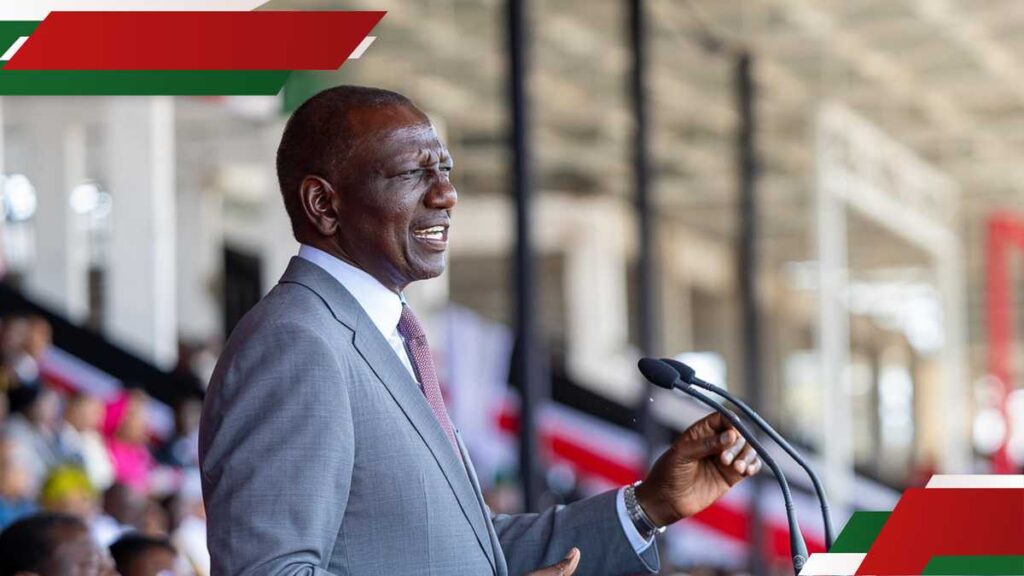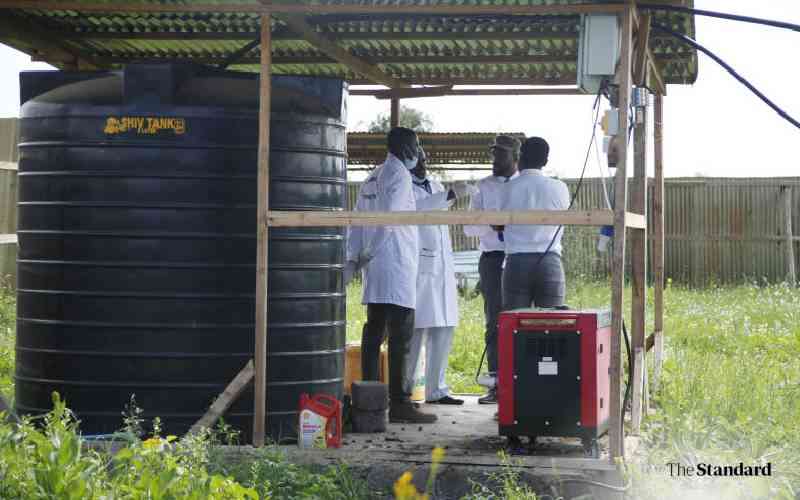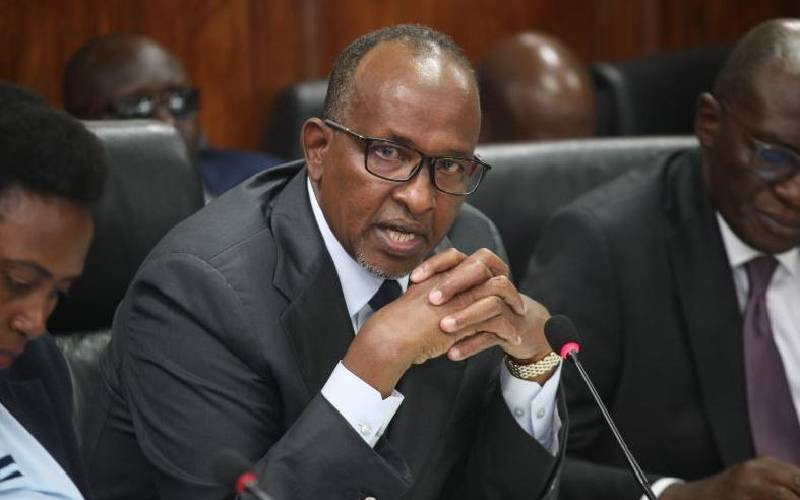Stakeholders and tax experts have expressed deep concerns over provisions in the Finance Bill, 2025, that could negatively impact businesses and cash flows in the economy.
Key among them is the removal of products from zero-rated to tax-exempt, increasing excise on imported packaging materials outside the East African Community (EAC), removal of the 15 per cent corporate tax incentive on local assemblers of motor vehicles, and granting the taxman access to trade secrets and personal data for integration into the electronic tax management.
They note that the government’s spending plan for the upcoming financial year, which will be read out in the National Assembly today, has no incentives for improving the living standards of Kenyans, even as the government avoids direct taxation.
“The move to make products tax-exempt will increase the cost of products. And as long as Kenya does not have a mechanism to claim refunds of our inputs, products will be expensive,” said the Kenya Association of Manufacturers’ Chief Executive, Tobias Alando.
He adds that, with the addition of excise, Kenyans would much rather import those plastic packaging materials, consequently transferring jobs outside the country.
Alando has said that manufacturers object to taxing companies that manufacture locally, to strike a balance between trading and manufacturing, given that the sector growth has been on a downward trajectory.
“Taxing our inputs and raw material is not helping the growth of the manufacturing sector,” he said, noting the sector currently employs 369,000 people directly.
According to Alando, the cost of duty payable for local manufacturing runs to almost 60 per cent, when compared to imported finished goods, local manufacturing is more expensive. He adds that all duties imposed on the manufacturing sector should be reconsidered by the state.
“Probably they don’t have the feel and the data and the calculations that we have done for them in terms of the impact of the proposals. This proposal is likely to close the manufacturing sector and encourage importation,” Alando remarked, saying that perhaps the policymakers are not aware of the impact of their decisions.
Currently, Kenya is largely an import-driven economy, and despite efforts to produce locally, tax measures imposed on manufacturers continue to dog investments.
Additionally, the manufacturers have said that the revenue mobilisation measures, as proposed by the government, are short-term and may lead to the closure of companies as a result of the policy decision.
The stakeholders say that revenue mobilisation measures should attract investments, not close down shops.
And as the budget and appropriations bill will be tabled in parliament, manufacturers say they hope for consideration of their concerns to grow the sector, and the creation of more jobs in manufacturing.
Stay informed. Subscribe to our newsletter
Even so, he projects that the sector is aiming to employ more people and bring in more investments. “In our quarter three barometer, 60 per cent of the manufacturers were holding on to their investments awaiting policy decisions in the finance bill.
If decisions made by parliament are positive, manufacturers say, more investments will come in. Failure to consider the feedback, manufacturers fear that they are going to move back into stagnation and growth of the manufacturing sector.
According to the Federation of Kenya Employers, the extension of tax refund timelines, increasing the period from 90 days to 120 days, and potentially up to 180 days if an audit is required, is a regressive step that could severely strain business cash flows.
The money bill, if passed as is, the Federation believes will deter investment in the local automotive industry, given the proposal to remove the fifteen per cent corporate tax incentive on local assemblers of motor vehicles.
The federation has criticized the proposal to delete the provision of the Income Tax Act that allows for the carrying forward of losses.
According to the federation, this proposal is unfair to employers as it contradicts the principle of taxing net gains and penalizes genuine economic losses.
“This may discourage investment, distort taxpayers’ financial positions, and create unfairness by taxing profits while ignoring related losses, ultimately harming economic efficiency,” the Federation of Kenya Employers stated in its submission for consideration by parliament.
The Finance Bill 2025 proposes to extend the timelines for approval for an Income Tax exemption certificate from sixty to ninety days. To this, the Employers’ Federation has said that it is a step in the wrong direction. Instead, they propose that this period should be reduced to 30 days to enhance efficiency,
The proposals add that the deletion of the incentive of claiming one hundred percent on cumulative investments done outside Nairobi and Mombasa or within the special economic zone will likely discourage major capital investments in regions outside the aforementioned areas, deterring investment in the tourism sector, a vital source of foreign exchange.
The proposed amendment to remove the 15 per cent tax incentive for real estate developers that construct at least one hundred residential units annually is likely to discourage investment in the real estate sector, the federation has said, and seems not to align with the Government’s affordable housing agenda.
Further, imposing VAT on goods for direct and exclusive use in the construction and equipping of specialised hospitals would significantly increase the cost of establishing such critical infrastructure, potentially discouraging investments.
The Federation of Kenya Employers, through its executive director, Jacqueline Mugo, has condemned the proposal to increase the timeframe to review an application for refund of overpaid taxes, saying the amendment may result in prolonged delays in the resolution of overpayment claims, potentially straining taxpayers’ cash flow and disrupting their financial planning.
According to Jacqueline Mugo, the current taxation policy is not growth-friendly.
“The widespread perception is that we are heavily taxed, yet the quality of public service delivery does not reflect this burden. Payroll taxation, in particular, is leaving employees vulnerable, contributing to the rise of the “working poor” individuals who are employed but still struggle to meet basic needs,” Ms. Mugo.
Picking lessons from 2024, Economist Patrick Muinde, the National Treasury was courteous and did not go for new taxes.
According to Muinde, the Finance bill seems to change taxes every year, affecting the planning component for businesses and pushing away investors.
“When you are in an environment where taxes change every year, you cannot project how the taxes will behave in the next five years. The lack of predictability makes the business environment quite toxic.” Muinde.
The expert says the new revenue mobilisation measures by William Ruto’s administration are not supported by the economic environment.
Additionally, the economist has said that the revenue targets and tax measures are not in tandem with the global macroeconomic environment, which is projected to slow down.
“There is a disconnect between what the government is saying and what the international organisations are saying in terms of growth,” he noted with regard to projected 5.3 per cent growth for 2025.
The economist has noted that the government has not put much emphasis on manufacturing, “in the budget itself, manufacturing has been a dominant area highlighted”.
There is a lot of money that moves in the informal sector, which is money outside the tax net. The economist has said that the move to grant KRA access to business data was to see how to move people from informal to formal.
“But if you look at the entire budget, there is no effort to migrate people from informal to formal.” This has brought a lot of controversy will be a big challenge legally because of the Data Protection Act.
According to the expert, there is nothing in the budget that is life-changing for Kenyans.

























